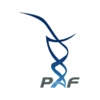PI : Eva Richard, Associate Professor, Universidad Autónoma de Madrid, Spain
PI: Eva Delpon, Professor, Universidad Complutense de Madrid, Spain
“Elucidation of cardiac electrophysiological alterations in propionic acidemia: Towards the identification of targets for therapeutics” In Spring 2022, PAF awarded $40,300 Initial Research Grant.
Cardiac complications in propionic acidemia (PA) disease have increasing prevalence with age. Affected patients are prone to life threatening cardiomyopathies, frequently, alterations in cardiac rhythm (arrhythmias), a major cause of morbidity and mortality. In order to treat and prevent these cardiac problems, we must first understand the underlying mechanisms. In this line, our project pursues the understanding of the mechanisms of these cardiac alterations as a first step to develop future therapeutic strategies. Although a PA mouse model has been used to study some aspects related to the cardiac phenotype, differences in heart rate and in the ionic currents underlying the generation of action potentials, makes it unsuitable for more in depth studies. Our aim is to elucidate the electrophysiological alterations in a human PA cellular model, differentiating patient-derived induced pluripotent cells (iPSC) generated in our lab, to mature cardiomyocytes. The study of iPSC-derived cardiomyocytes from two PA patients with different cardiac phenotypes will provide a deeper understanding of the molecular mechanisms responsible for cardiac electrical defects responsible for life threatening arrhythmias in PA and identify potential targets for therapy. For this PAF-funded project, two groups of scientists with complementary expertise are actively collaborating to ensure success in the study of PA-related cardiac alterations. Our laboratory expertise is in PA disease and in the generation and use of iPSC -derivatives. We collaborate with Professor Eva Delpon’s group at Universidad Complutense de Madrid with expertise in cellular cardiac electrophysiology and cardiovascular pharmacology. Preliminary results have confirmed the generation of mature PA iPSC-cardiomyocytes that represent a promising model for investigating the pathological mechanisms underlying PA cardiomyopathies. We would like to sincerely thank the Propionic Acidemia Foundation for supporting our research to working together toward a common goal in Propionic Acidemia disease.
